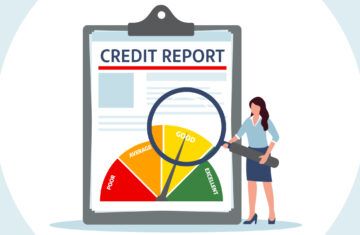Financial independence – the state where you have enough wealth to live on without having to actively work for basic necessities – is a goal many aspire to. While it’s often associated with later stages of life, reaching this milestone in your 30s is not only possible but increasingly common among the financially savvy. This article will explore the strategies, mindset shifts, and practical steps needed to achieve financial independence at a relatively young age.
Understanding Financial Independence
Before diving into the how-to, it’s crucial to understand what financial independence really means. At its core, financial independence is about having enough passive income to cover your living expenses, allowing you to work by choice rather than necessity. This doesn’t necessarily mean retiring early – many financially independent individuals continue working, but with the freedom to pursue passions or take calculated risks.
The exact amount needed for financial independence varies greatly depending on your lifestyle, location, and personal goals. A common rule of thumb is the “4% rule,” which suggests that you can withdraw 4% of your investment portfolio annually with a high probability of not running out of money. For example, if your annual expenses are $40,000, you’d need a portfolio of around $1 million to be considered financially independent.
Why Aim for Financial Independence in Your 30s?
- Time is on your side: The earlier you reach financial independence, the more options you have for the rest of your life.
- Compound interest: Starting early allows you to harness the power of compound interest more effectively.
- Career flexibility: Achieving financial independence can give you the freedom to take career risks or pivot to more fulfilling work.
- Reduced stress: Financial security can significantly reduce stress and improve overall well-being.
- Ability to focus on personal growth: With basic needs taken care of, you can dedicate more time to personal development and pursuits.
Key Strategies for Achieving Financial Independence in Your 30s
1. Maximize Your Income
The foundation of financial independence is having a strong income. In your 30s, you’re likely in a prime position to boost your earning potential.
- Negotiate your salary: Don’t be afraid to ask for raises or negotiate job offers. Research industry standards and be prepared to demonstrate your value.
- Develop high-income skills: Invest in learning skills that are in high demand and command higher salaries. This could involve further education, certifications, or self-study.
- Consider side hustles: Leverage your skills or interests to create additional income streams. This could be freelancing, consulting, or starting a small business.
- Job hop strategically: While loyalty can be valuable, changing jobs every few years can often lead to significant salary increases.
2. Live Below Your Means
A high income alone won’t lead to financial independence if your spending keeps pace. Adopting a frugal (but not miserly) lifestyle is crucial.
- Create a budget: Track your expenses and create a realistic budget that prioritizes saving and investing.
- Practice mindful spending: Before making purchases, especially large ones, ask yourself if they align with your values and goals.
- Avoid lifestyle inflation: As your income increases, resist the urge to upgrade your lifestyle proportionately. Instead, funnel those increases into savings and investments.
- Find free or low-cost alternatives: Look for ways to enjoy life without spending excessively. This could involve free community events, home cooking, or finding creative ways to socialize without breaking the bank.
3. Aggressively Pay Off Debt
Debt, especially high-interest debt, can be a major roadblock to financial independence. Prioritize paying off debt as quickly as possible. Here is a handy debt snowball calculator.
- Target high-interest debt first: Focus on paying off credit card debt or other high-interest loans as a priority.
- Consider debt consolidation: If you have multiple debts, consolidating them into a single, lower-interest loan can make repayment more manageable.
- Avoid taking on new debt: While paying off existing debt, be cautious about taking on new obligations.
- Refinance when it makes sense: For long-term debts like mortgages, keep an eye on interest rates and refinance if it will save you money in the long run.
4. Invest Aggressively and Wisely
Investing is the engine that will drive you towards financial independence. In your 30s, you have the advantage of time, allowing you to take on more risk for potentially higher returns.
- Maximize retirement accounts: Take full advantage of 401(k) matches and max out tax-advantaged accounts like IRAs.
- Invest in low-cost index funds: These provide broad market exposure with minimal fees, a strategy endorsed by many financial experts.
- Consider real estate: Whether through direct ownership or REITs, real estate can provide both appreciation and passive income.
- Stay the course: Develop a long-term investment strategy and stick to it, regardless of short-term market fluctuations.
- Educate yourself: Continuously learn about investing strategies, market trends, and financial planning to make informed decisions. Seeking Alpha, is an excellent resource for educating yourself on investing, I use it personally.
5. Build Multiple Income Streams
Relying solely on a day job makes the path to financial independence longer and riskier. Diversifying your income can accelerate your progress and provide security.
- Dividend investing: Build a portfolio of dividend-paying stocks for passive income.
- Rental properties: If you’re interested in real estate, consider becoming a landlord.
- Create digital products: Ebooks, courses, or applications can generate ongoing passive income.
- Start a blog or YouTube channel: While not immediately lucrative, these can grow into significant income sources over time.
- Peer-to-peer lending: Platforms like Prosper or Lending Club allow you to earn interest by lending directly to individuals.
6. Continuously Educate Yourself
Financial literacy is a crucial component of achieving and maintaining financial independence. Make learning about personal finance, investing, and economics a lifelong habit.
- Read widely: Books, financial blogs, and reputable news sources can all contribute to your financial education.
- Attend workshops and seminars: Many communities offer free or low-cost financial education events.
- Follow financial experts: While being cautious of those selling get-rich-quick schemes, many legitimate experts share valuable insights on social media and podcasts.
- Consider working with a financial advisor: A good advisor can provide personalized guidance and help you avoid costly mistakes.
7. Protect Your Wealth
As you build wealth, it’s important to protect it. This involves both insurance and legal strategies.
- Adequate insurance coverage: Ensure you have appropriate health, life, disability, and property insurance.
- Emergency fund: Maintain a liquid emergency fund to cover unexpected expenses without derailing your financial plan.
- Estate planning: Even in your 30s, it’s not too early to think about wills, trusts, and other estate planning tools.
- Tax planning: Work with a tax professional to ensure you’re taking advantage of all available deductions and credits.
Challenges and Considerations
While achieving financial independence in your 30s is possible, it’s important to be aware of potential challenges:
- Social pressure: Your lifestyle may differ significantly from peers, which can lead to social challenges.
- Career implications: Aggressively pursuing financial independence might mean making career choices that prioritize income over other factors.
- Family planning: If you’re considering starting a family, factor these potential expenses into your plans.
- Market volatility: Be prepared for market downturns and have a plan to weather them without abandoning your strategy.
- Burnout: Pursuing financial independence can be all-consuming. Remember to maintain work-life balance and prioritize your mental and physical health.
Achieving financial independence in your 30s is an ambitious but attainable goal. It requires a combination of strategic planning, disciplined execution, and a willingness to make short-term sacrifices for long-term gain. By maximizing your income, living below your means, investing wisely, and continuously educating yourself, you can set yourself on the path to financial freedom at a young age.
Remember, financial independence is not just about the numbers – it’s about creating a life of options and opportunities. Whether you choose to retire early, change careers, start a business, or simply work on your own terms, achieving financial independence gives you the freedom to design the life you truly want.
The journey to financial independence is unique for everyone, and it’s important to define what success looks like for you. Stay focused on your goals, be willing to adjust your strategy as needed, and don’t forget to enjoy the journey along the way. With dedication and smart financial decisions, you can achieve a level of financial freedom that many only dream of – and do it while you’re still young enough to enjoy it to the fullest.




